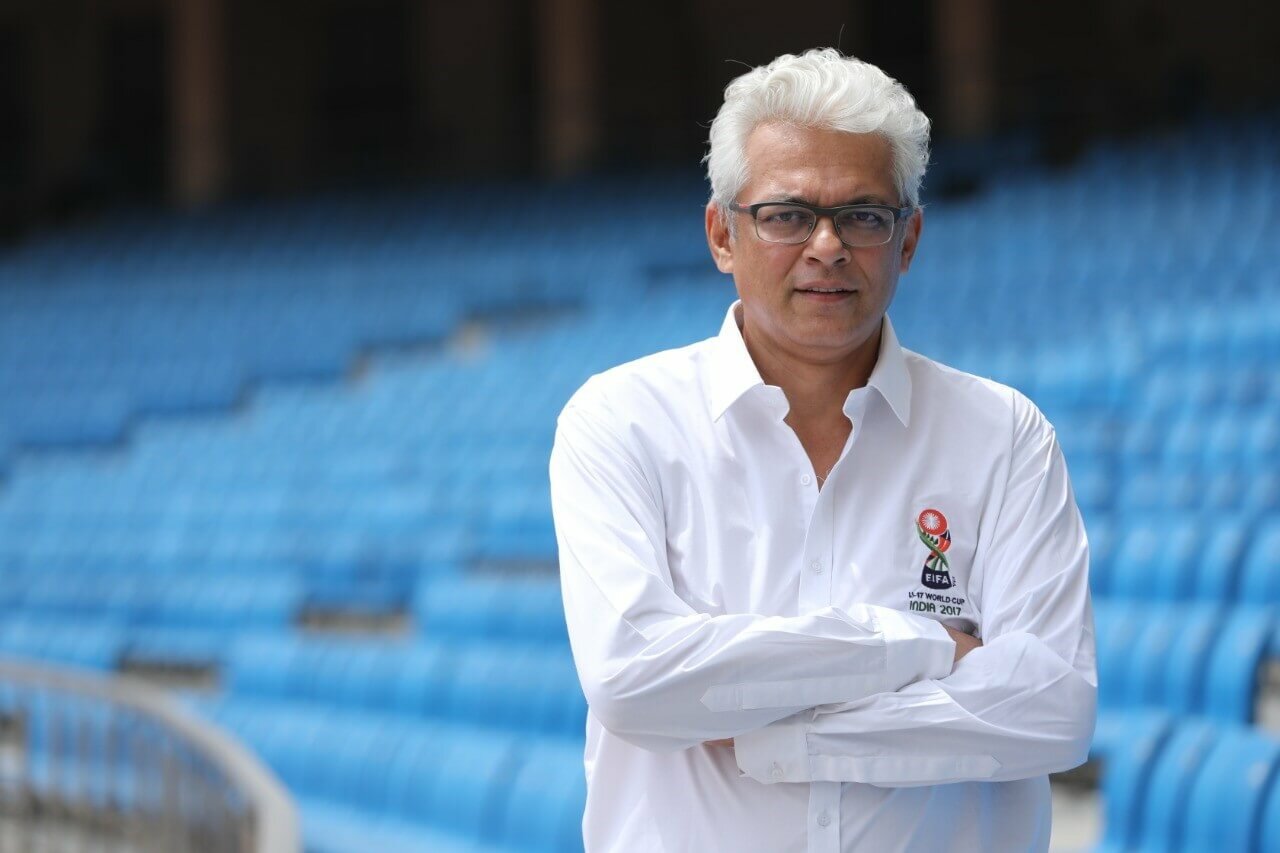A SCATHING TAKE ON BCCI’S DEAFENING SILENCE ON RACISM

Around March 2020, when the coronavirus outbreak was still perceived as a whimper, mindlessly exaggerated by scientists and virologists, a contrasting phenomenon worthy of class commentary was observed. With workers across all sectors getting furloughed or fired, every day was turning out to be a battleground for survival for a vast majority of the population across the planet. At the same time, somewhere in parts of the US and western Europe, global elites were hiring contractors to build an extravagant bunker. A bunker that will protect them and their family from not only the virus outbreak, but also from the civil unrest, nuclear hazard and perhaps an alien invasion as well. If anything, the act was more of a statement to the masses from the rich: “we have accumulated enough capital to carve our own vacuum and we are strong enough to outlast most of the people on the planet.”
The issues that plague the world no longer perturb them. Elsewhere, in the cricketing sphere, the Board of Control for Cricket in India (BCCI) too issued a very similar sort of statement. When the whole world joined hands to protest against racism and other forms of systemic injustices, BCCI observed a pin-drop silence, as if everything was simply picture perfect. Instead, the board decided to put their mouth where the money is – planning the 2020 edition of the Indian Premier League.
To the unversed, Darren Sammy earlier made a startling revelation that his Indian teammates at the Sunrisers Hyderabad used to address him and Thisara Perera as “kallu”, a highly problematic racist identifier that certain Indians throw around at people with darker complexions. An Instagram post later revealed that one of Sammy’s teammate responsible behind this was veteran pacer, Ishant Sharma.
View this post on InstagramSo recently I discovered a word that I was being called was not what it actually meant I need some answers. So before I start calling out names I need these individuals to reach out and please tell me there’s another meaning to that word and when I was being called it,it was all in love. #blackandproud #blackandconfident #clarasboy #saynotoracism #stopracism #cricketer #stlucia
However, Sharma never felt to the need to come out with a formal apology for something as regressive and disrespectful as the terms he used to address Sammy. Perhaps what is worse is that at the time, the former West Indies skipper was under the illusion that it was purely a nickname that was used to address him in a jovial fashion by the Indian contingent. Neither did the franchise Sharma and Sammy represented consider it a matter worthy of their attention, nor did the BCCI deem it necessary to come up with a clarification even when one of their contracted players’ name popped up.
“Stick to sports” has always been a guiding principle for several higher-ups that lead organizations that continue to remain archaic in terms of their core principles and unfortunately it has to be said, the BCCI are no different. During a tumultuous time, the impression one gets is that the last thing they would like to witness is taking any sort of stand that questions an aspect as relevant as racial discrimination in order to protect the perceived orderly realm of sport. It has to be said that the whole spectacle seems to be a cash-churning machinery which needs to be oiled only when it gets stuck midway while dispensing money.
One hasn’t even tried to encourage them to voice their opinions on the gut-wrenching death of George Floyd and join in the ‘Black Lives Matter’ movement. This is a player that has been contracted by them for over a decade and continued to racially discriminate against not just a fellow professional but a fellow human being. It’s pretty straightforward to be honest.
For the BCCI, it might be pretty straightforward to ward off the responsibility by stating racism is a societal malice and cricket alone is not responsible for such behaviors. But the board must understand that they have a duty to reprimand those involved in case such cases situations arise in competitions and premises under their control. Further, the game doesn’t happen in a vacuum. Cricket’s wealth, status and prestige come directly from the passive spectators. These spectators buy tickets, merchandise and TV subscriptions to keep the board’s finance in a healthy state. In return, the board has an ethical duty to address their grievances and care for what happens not only within but beyond the 22 yards.
Darren Sammy’s revelation could have been a wake-up call. But, the board, once again, decided to let go of the opportunity. Forget impactful steps to counter racism at work; the institution didn’t even bother to come up with a token response.
It’s not that a written statement from the BCCI or a formal apology from the abuser would have been enough to tackle something as deep-rooted as racism. A major structural overhaul at many fronts is the need of an hour. But such symbolism is a bare minimum one expects from organizations at the very top that are supposed to lead the way. It would have at least educated several admirers of the game of not only the fact that what Ishant Sharma did was unjustifiable, but of the simple and integral fact that there is no place for racial injustice. To reprimand the player in question and duly punish him sends a stern and essential message, emphasis should have been laid on how engaging in such actions is intolerable, punishment or no punishment.
Sourav Ganguly, one of the nation’s most influential captains and batsmen, otherwise comes as perhaps the most outspoken and candid BCCI president in recent times too preferred the sound of silence.

Dada captained India during the 2007-08 Border Gavaskar Trophy when the infamous ‘Monkeygate’ scandal took place and while Harbhajan Singh’s racial abuse towards Andrew Symonds was alleged, it is alarming to see how Ganguly decided to stay inactive and not utter a word. Factor in how Symonds has publicly revealed that he continues to be deeply affected by the incident, one would expect Ganguly to not want a repeat of such a shameful episode and would instead take matters into his own hands and address Ishant Sharma’s wrongdoings that were clearly racist and discriminatory in nature.
Decisive action would have surely been a great lesson for the next generation of young cricketers. Instead, the BCCI, inebriated by the power and prestige, came in defence of the abuser who eventually walked away freely. Whether it’s organizing the T20 extravaganza during the ongoing pandemic or an infuriatingly tolerant policy for their employees indulging in the act of racism, the BCCI is capable of doing things what others might consider improbable. Perhaps, this is what makes them a ‘world leader of cricket’. Like the wealthy families building bunkers to block off the worldly noise, the BCCI’s deafening silence over the whole issue showed how much they care about the world outside their revenue model.
Jerry Seinfeld once quipped: “People come back from the game yelling, ‘We won! We won!’ No: they won; you watched.”
Seinfeld’s quotes aptly describe the apathy of the BCCI. It reinstates the central point most cynics of sport make; the relationship between fans and the team is merely transactional. The viewers might be under the illusion that their presence adds to the beauty of the sport but what kind of message do such complicit acts send do the individuals in India that suffer the consequences of marginalization, purely on racial grounds?
The BCCI’s silence is an assertion of the fact that they don’t take pride in extending their allegiance to people’s struggles and quest to make this world a little fairer, a little more compassionate and a little less toxic.
This is merely a plea at this point to cricket’s premier national board- set a more inclusive precedent.
Read More
THE ROYAL ROOTS OF INDIAN CRICKET
KUSHAGR DIXIT \
FEATURES
AN HOMAGE TO THE FORGOTTEN HEROES FROM THE GREATEST ODI OF ALL TIME
ATUL KUMAR MAURYA \
FEATURES
THE JOY BHATTACHARJYA INTERVIEW: WORKING WITH KOLKATA KNIGHT RIDERS, IPL AUCTIONS AND MORE
KUSHAGR DIXIT \
INTERVIEWS



